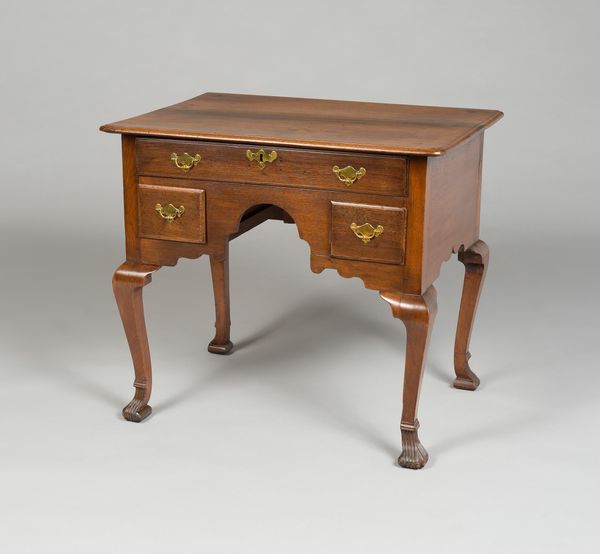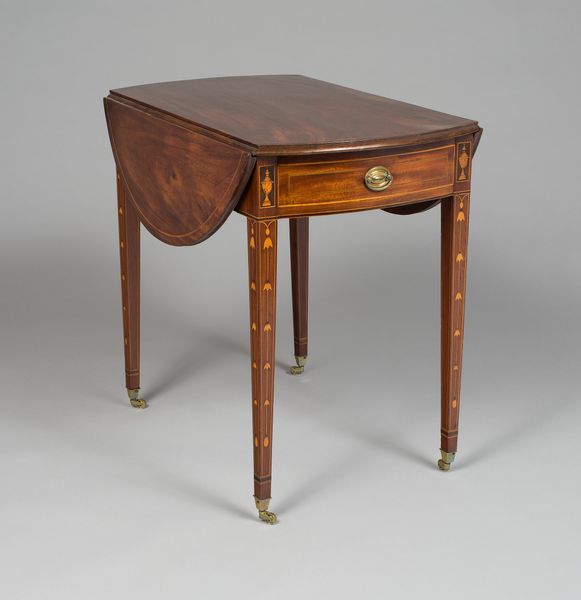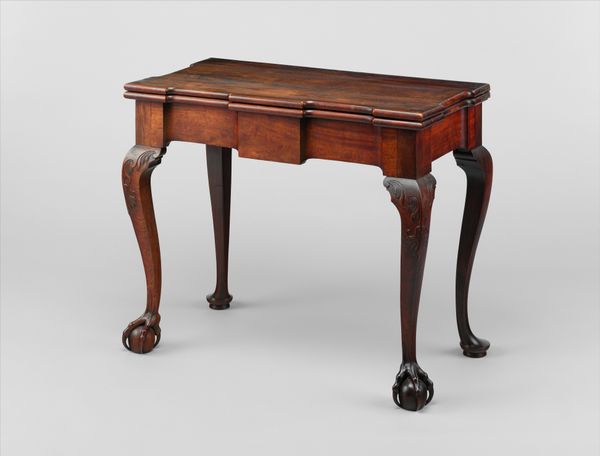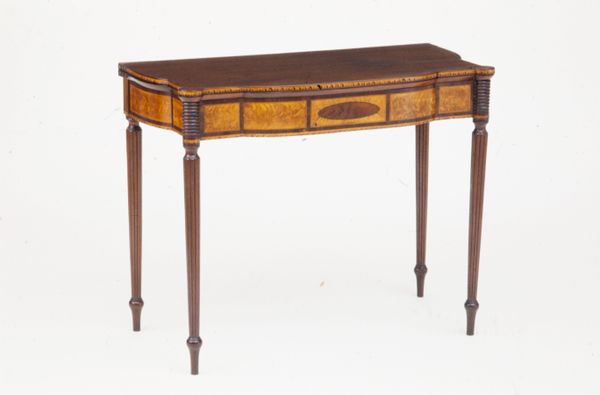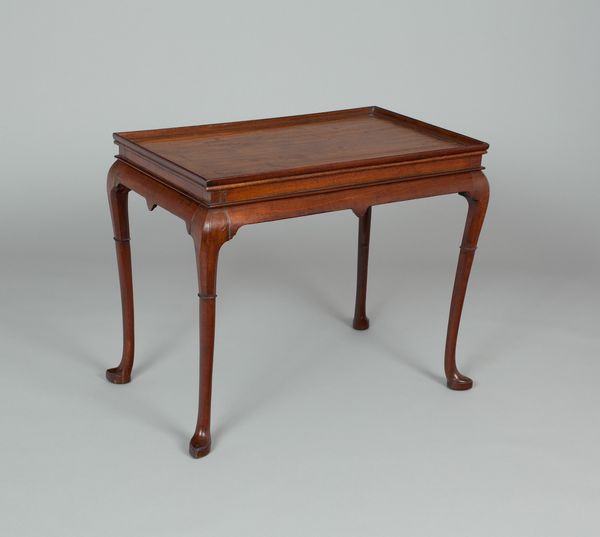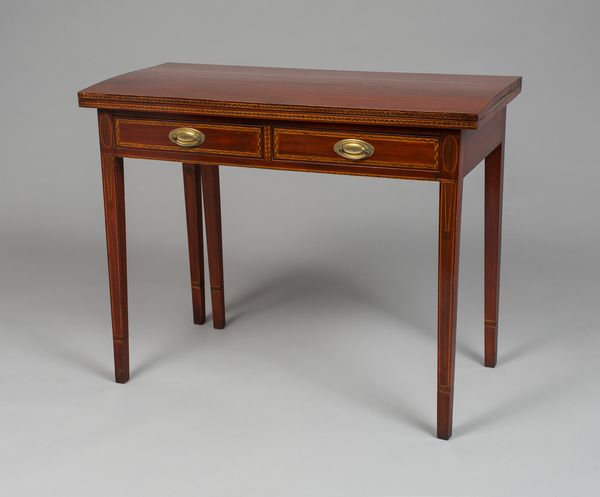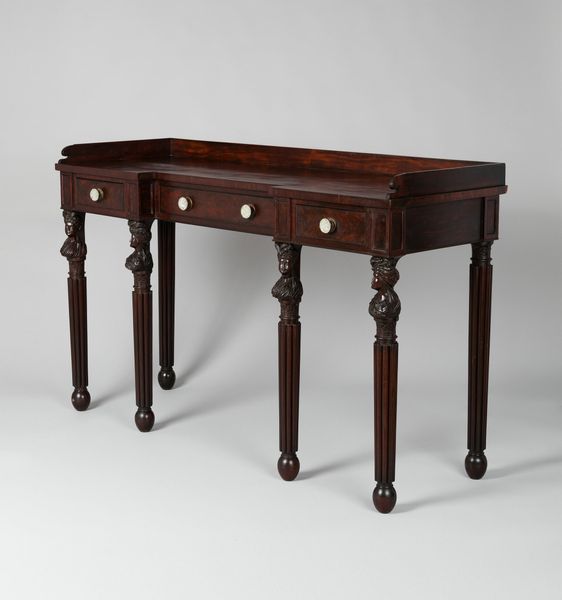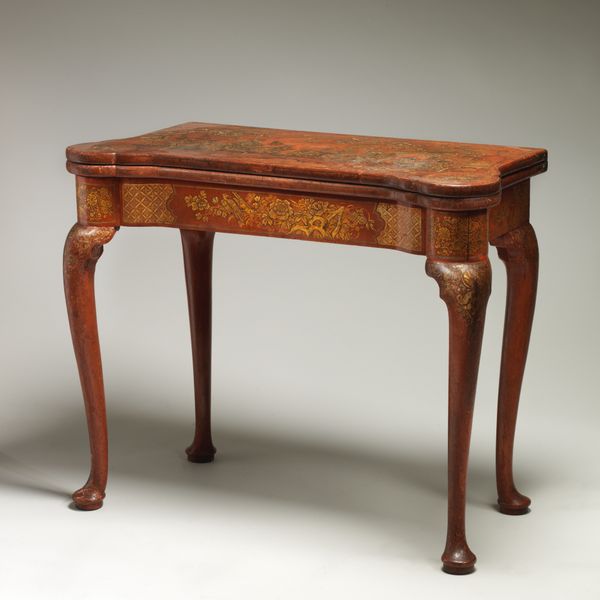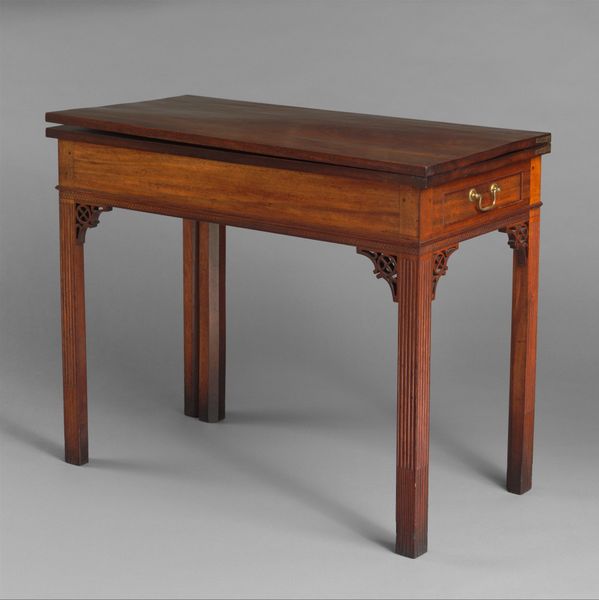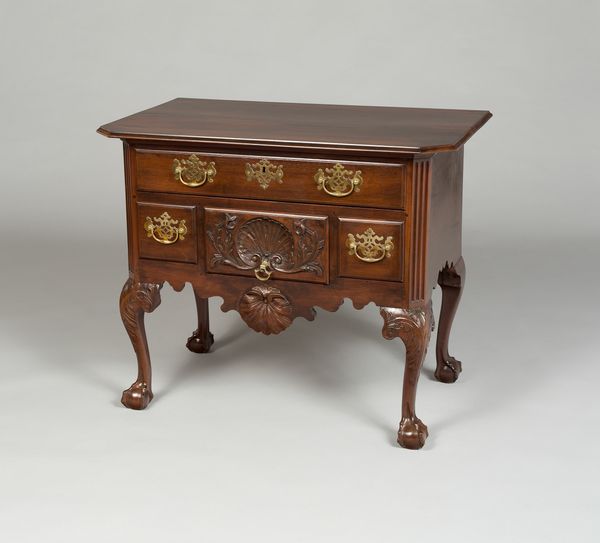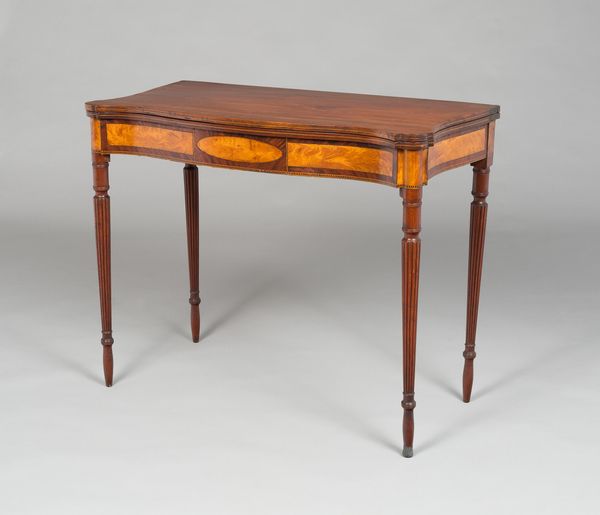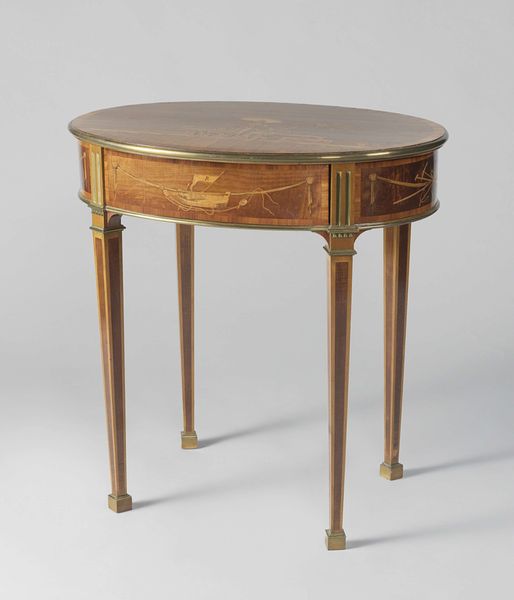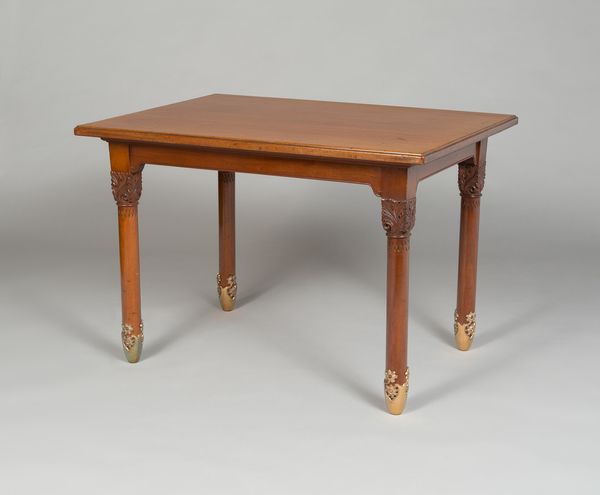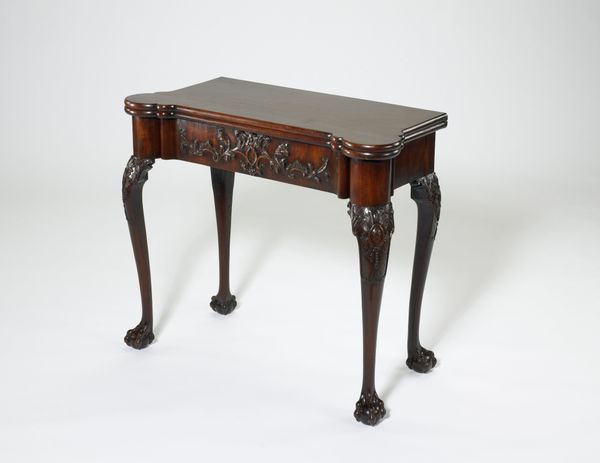
wood
#
neoclacissism
#
furniture
#
wood
#
decorative-art
Dimensions: height 77.0 cm, width 68.5 cm, depth 45.5 cm, width 66.0 cm, depth 42.5 cm
Copyright: Rijks Museum: Open Domain
David Roentgen crafted this mahogany writing table, a piece that whispers tales of late 18th-century Europe. Its clean lines and classical motifs reflect the burgeoning Neoclassical style, a deliberate turn away from the more ornate Rococo that preceded it. Consider the social context: this was an era of Enlightenment ideals, where reason and order were prized. Furniture like this, with its emphasis on symmetry and function, mirrored those values. Made in Germany, but trading across Europe, Roentgen's cabinet-making workshop created pieces for the elite, like Louis XVI, catering to a clientele eager to display their refined taste and intellectual leanings. But objects like this were more than just practical. By studying invoices, letters, and workshop records, we can unpack the complex networks of patronage, production, and consumption that shaped the art world of the time. Ultimately, this table reminds us that art always exists within a specific social and institutional framework.
Comments
rijksmuseum over 2 years ago
⋮
After 1780 marquetry went out of fashion in Paris. Unembellished panels of wood with an attractive grain were increasingly used as veneer; mahogany was a particular favourite. This development was followed throughout Europe, and also by Roentgen, who sold his furniture in Paris, among other places.
Join the conversation
Join millions of artists and users on Artera today and experience the ultimate creative platform.
